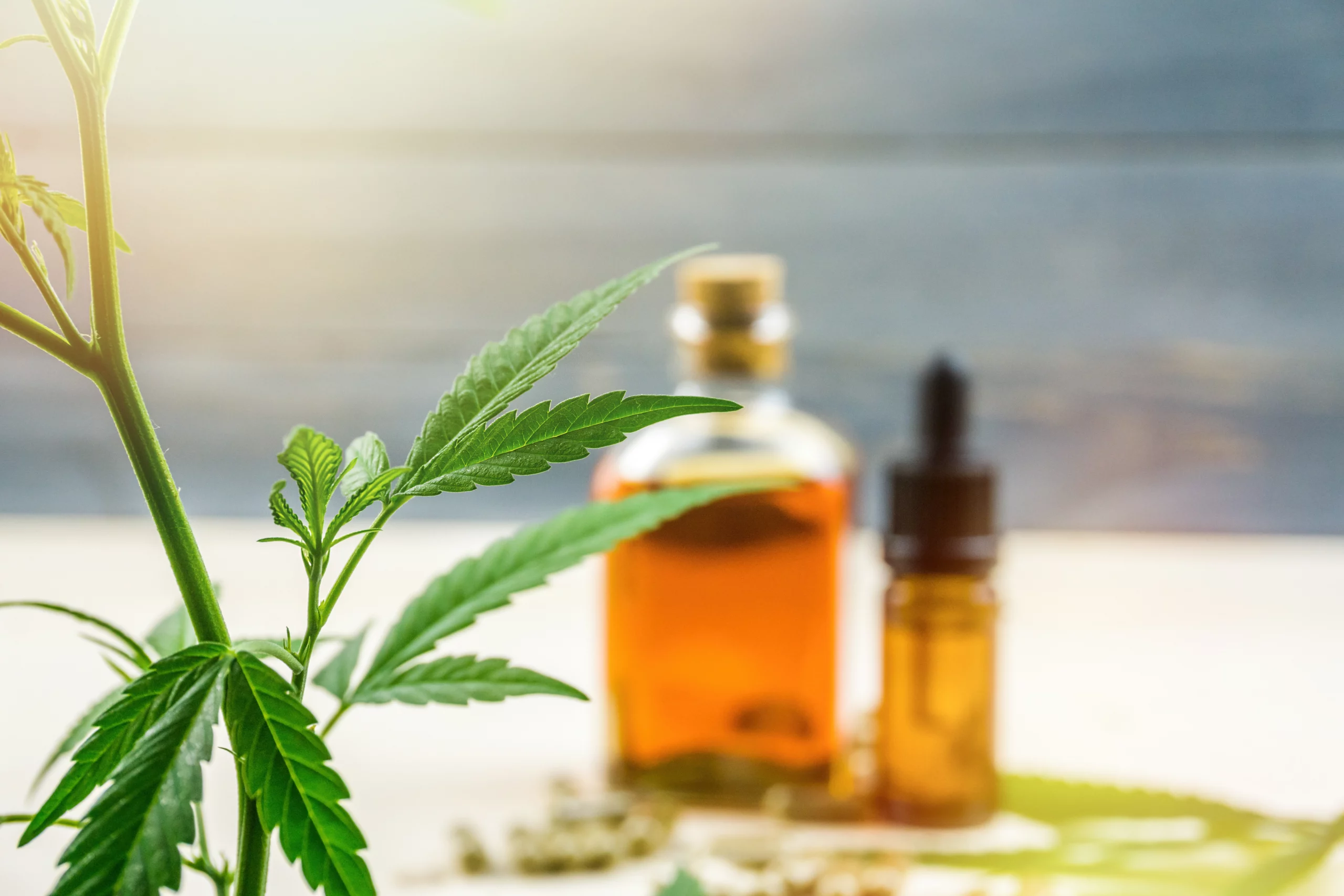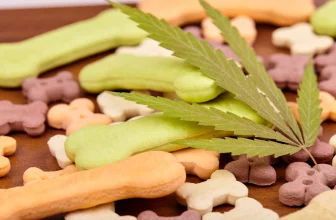
Full Spectrum CBD Oil is incredible. Cannabidiol, a.k.a. CBD, has become one of the most popular natural remedies in recent years. Read below to learn more about Full Spectrum CBD Oil.
What is Full Spectrum CBD oil?
Full Spectrum CBD refers to products that contain the entire hemp plant extract, including all the cannabinoids, terpenes, flavonoids, and other plant compounds. On the other hand, CBD isolate refers to products that only contain pure, isolated CBD. No other compounds from the hemp plant are present. Both full-spectrum and isolate products have their own unique benefits, and the one you choose will depend on your specific needs and preferences.
Where does Full Spectrum CBD Oil come from?
CBD and its accompanying cannabinoids are derived from the hemp plant. CBD is a non- psychoactive compound that is said to have a number of health benefits, including reducing anxiety, pain, and inflammation, and it is primarily found in hemp — if you’re looking for THC, you’re better off looking at the marijuana plant.
How is Full Spectrum CBD Oil made?
Manufacturers start by taking harvested, dried hemp and separating the flower from the rest of the plant. They use an extraction process — usually CO2-based extraction — to remove CBD and other cannabinoids, terpenes, and flavonoids from the vegetable matter. Then they suspend these cannabinoids in a carrier oil like coconut oil or hemp oil to make it flavorful and easier to dose.
What is the difference between pure CBD oil and Full Spectrum CBD oil?
One of the biggest benefits of full spectrum CBD is the “entourage effect.” This refers to the idea that all the compounds in the hemp plant work together in a synergistic way to enhance the benefits of CBD. In other words, the CBD, terpenes, flavonoids, and other cannabinoids are thought to interact to produce a broader and more potent range of therapeutic effects. This is why many people believe that full spectrum CBD is better than isolates.
There is some scientific evidence to support this claim. For example, studies have shown that the combination of THC and CBD can produce a greater therapeutic effect than either compound alone. Other research has suggested that the presence of certain terpenes can enhance the effects of THC and CBD.
However, the concept of the entourage effect is still a topic of ongoing debate in the scientific community. Some experts argue that the entourage effect is not a real phenomenon and that the individual compounds in the plant are responsible for its therapeutic effects.
Despite these debates, the concept of the entourage effect is popular among patients and consumers, who increasingly seek out products that contain a broad spectrum of compounds from the cannabis plant.
However, it’s important to note that not everyone is a fan of the entourage effect. Some people prefer isolates because they’re purer and more concentrated. If you’re looking for a product that has a high concentration of CBD, then an isolate might be a better choice for you. Additionally, some people have allergies or sensitivities to certain plant compounds, and in these cases, isolates might be a better option as well.
Does Full Spectrum CBD show up in drug tests?
Full spectrum CBD products contain trace amounts of THC, which is the psychoactive compound found in the hemp plant. While the amount of THC is typically very small and won’t get you “high,” it can still show up on drug tests. If you’re worried about drug testing, then an isolate might be a better choice for you.
In terms of price, isolates tend to be cheaper than full-spectrum products. This is because isolates are more highly refined and don’t contain any other plant compounds. However, it’s important to keep in mind that quality and potency can vary greatly between products, regardless of whether they’re full-spectrum or isolate.
Okay, so why Full Spectrum CBD Oil CBD oil as opposed to, say, CBD gummies?
Look, we’re not here to knock CBD gummies or any other means of taking CBD. It’s a magical compound — you can do everything from rubbing it into your skin with CBD cream to drinking a CBD beverage.
That being said, CBD oil is probably the best way to physically get CBD into your system.
That’s because the area under our tongues is “hypervascular,” meaning there is a large concentration of blood vessels there. These blood vessels absorb substances placed under our tongues, so when you take CBD oil, it gets absorbed directly into your bloodstream. By contrast, when you take an edible, that CBD has to pass through your digestive tract and get absorbed through digestion — not a terribly efficient process in comparison.
One of the primary benefits of taking CBD oil is its ease of use. Just take a dropper, give it a squeeze to load it with CBD oil, and place a few drops under your tongue. Hold them there for 60 seconds and swallow. Done.
Another reason why CBD oil is so efficient is that it provides a consistent dose of CBD with each serving. The dropper makes it easy to measure, and you can simply adjust the amount of oil you take to meet your needs.
How long does it take to feel the effects of Full Spectrum CBD oil?
Generally, you’ll feel the effects within 15 minutes of doing a sublingual dose.
When should I take Full Spectrum CBD oil?
It’s best to take full-spectrum CBD at night. You can take broad-spectrum or isolates at any point during the day.
Does Full Spectrum CBD oil help with sleep?
Yes! The terpenes present in full-spectrum CBD can help you get a good night’s sleep, whereas broad-spectrum CBD and isolate do not tend to have this effect.
How many drops of Full Spectrum CBD oil should I take?
Start off with this calculation:
Starting dose = [¼ mg CBD] x [your body weight in lbs.]
For example, a 120-lb. person would take 30 mg each day, while a 200-lb. person would
take 50 mg.
What happens if you take too much Full Spectrum CBD oil?
Typically, nothing much happens. You may experience drowsiness, dry mouth, nausea, or diarrhea, but these side effects aren’t terribly common.
Will CBD interfere with medications?
Yes, and it’s important to talk with your doctor before starting CBD — especially if you’re on other medications. CBD has been reported to interfere with antidepressants, anti-epileptic medications, opioid analgesics, as well as acetaminophen.
How do I find good-quality Full spectrum CBD oil?
It’s important to note that not all full spectrum CBD oils are created equal. Make sure to choose a high-quality product from a reputable brand that uses third-party testing to ensure purity and potency. Additionally, it’s a good idea to talk to your doctor before starting to take CBD oil, especially if you are taking any medications or have any healthMconditions.
Full spectrum CBD and isolates have their own unique benefits, and the one you choose will depend on your specific needs and preferences. If you’re looking for a product that sports all the compounds in the hemp plant, then full-spectrum CBD is the way to go. However, if you prefer a purer, more concentrated product, or if you’re worried about drug testing, then
an isolate might be the way to go.






